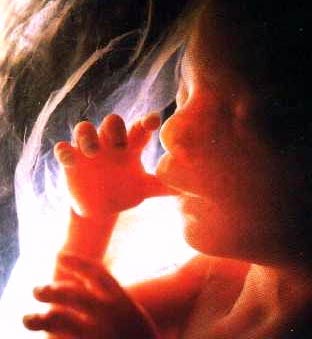The Truth on Trauma in Abortion
By Cardinal Pel | Apr 13, 2008

SOMETIMES light begins to shine into corners where there has been darkness for a long time, perhaps generations. Today, in Australia, the public is being offered much more information on the causes, side-effects and consequences of abortion.
Surveys have brought us more information on the role of fathers, on the reluctance of most mothers who abort, and on the almost contradictory views of the majority, who simultaneously support the right of a woman to abortion but are deeply uneasy about the extent of the practice.
Pregnancy is not a disease or illness, but a natural event. A woman’s body is programmed to nurture and sustain life, and her whole psychology changes, with her body, during the nine months of pregnancy.
She can feel drawn in different directions, marvelling at the mystery of new life, but overwhelmed by the prospect of so much responsibility; worried by concerns about health or finance, but excited by the prospect of a new human being to be loved.
Abortion is another matter altogether, when a mother is violently disconnected from her child. This is a genuine trauma, an unnatural death, where a mother has often violated her natural instincts as well as her moral sense.
Occasionally, we hear of tragic situations where a father is unable to stop the abortion of his child by the mother. This is rare, as the boot is often on the other foot.
Statistics indicate there is a high level of coercion driving women into unwanted abortions and that the male partner plays acentral role in 95 per cent of abortion decisions.
The 2005 Post Abortion Review by the Elliott Institute in the US claimed 80 per cent of women would give birth if given support.
An abortion clinic security guard testified that women were threatened or abused by men who took them to there and, in the US, murder is the number one cause of death among pregnant women.
In the past, the psychological and spiritual agony experienced by many mothers after abortion was ignored by the media, denied by mental-health professionals and scorned by the women’s movement.
Women were told that abortion would bring them relief, but often found only depression and grief whose causes they did not recognise.
The woman’s loss is often secret, preventing help from family and friends. In any case, society generally doesn’t want to know.
For some years, evidence hasbeen published in top-level journals such as the British Medical Journal about post-abortion traumas in the US, Britain and Finland.
This complements New Zealand research by Professor David Fergusson about a higher suicide risk, more depressive psychoses, nightmares, flashbacks and emotional numbness.
In 1989, a panel from the American Psychological Association concluded unanimously that legal abortion “does not create psychological hazards for most women undergoing the procedure”.
Such a claim is no longer valid.
Cardinal Pell is Australia’s most senior Catholic cleric.















